At the crossroads of West Africa and Central Africa, the territory of what is now Cameroon has seen human habitation since some time in the Middle Paleolithic, likely no later than 130,000 years ago. The earliest discovered archaeological evidence of humans dates from around 30,000 years ago at Shum Laka. The Bamenda highlands in western Cameroon near the border with Nigeria are the most likely origin for the Bantu peoples, whose language and culture came to dominate most of central and southern Africa between 1000 BCE and 1000 CE.
Alexandre Biyidi Awala, known as Mongo Beti or Eza Boto, was a Cameroonian writer.
Articles related to Cameroon include:
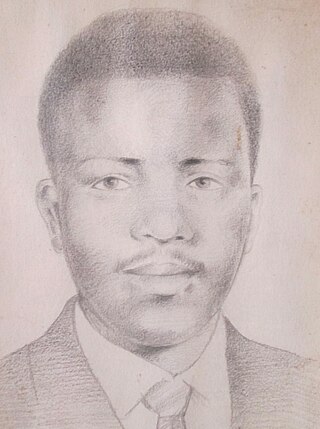
Félix-Roland Moumié was an anti-colonialist Cameroonian leader, assassinated in Geneva on 3 November 1960 by an agent of the SDECE with thallium, following official independence from France earlier that year. Félix-Roland Moumié succeeded Ruben Um Nyobé, who was killed in September 1958, as leader of the Union des Populations du Cameroun.
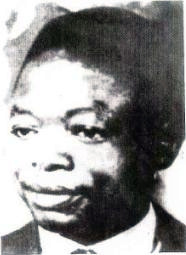
Ruben Um Nyobè was an anti-colonialist Cameroonian leader, slain by the French army on 13 September 1958, near his natal village of Boumnyebel, in the department of Nyong-et-Kellé in the maquis Bassa. On 10 April 1948, he created the Cameroon's People Union (UPC), which used unarmed struggle to obtain independence from French colonial rule.

Andre-Marie Mbida was a Cameroonian statesman, a nationalist, the first Cameroonian to be elected Member of Parliament at the French National Assembly, a Prime Minister of Cameroon, the second African-born Prime Minister in Sub-Saharan Africa, the first Head of State of French-speaking autonomous Cameroon from 12 May 1957 to 16 February 1958, and the first political prisoner of independent Cameroon from 29 June 1962 to 29 June 1965.

Parliamentary elections were held in Cameroon on 22 July 2007, with voting in some districts re-run on 30 September. Local elections were held on the same day, with seats on 363 town councils at stake. The result was a victory for the ruling Cameroon People's Democratic Movement (RDPC), which won 153 of the 180 seats in the National Assembly, whilst the main opposition party, the Social Democratic Front (SDF), won 16 seats.
Augustin Frédéric Kodock was a Cameroonian politician who was Secretary-General of the Union of the Peoples of Cameroon from 1991 to 2011. He worked in Cameroon's state administration during the 1960s and then worked at the African Development Bank through the 1970s. After a stint as head of Cameroon Airlines in the mid-1980s, he participated in the beginnings of multiparty politics in the early 1990s, becoming Secretary-General of the UPC. Allying himself with President Paul Biya, he was appointed to the government as Minister of State for Planning and Regional Development from 1992 to 1994 and then as Minister of State for Agriculture from 1994 to 1997. Subsequently, he was again Minister of State for Agriculture from 2002 to 2004 and Minister of State for Planning from 2004 to 2007.

French Cameroon, also known as the French Cameroons, was a French mandate territory in Central Africa. It now forms part of the independent country of Cameroon.
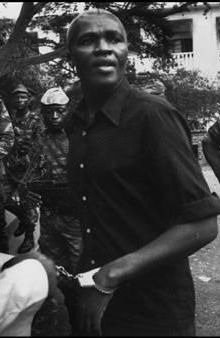
Ernest Ouandié was a leader of the struggle for independence of Cameroon in the 1950s who continued to resist the government of President Ahmadou Ahidjo after Cameroon became independent in 1960. He was captured in 1970, tried and condemned to the death penalty. On 15 January 1971, he was publicly executed in Bafoussam.
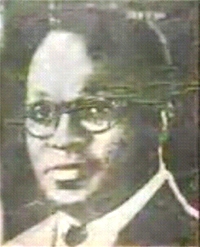
Castor Osendé Afana was a Marxist economist and militant nationalist who died in 1966 while fighting as a guerrilla against the government of Cameroon.
Boumnyébel is a community in Cameroon about 120 kilometres (75 mi) along the road from Yaoundé to Douala. The village is on the road from Edéa to Yaoundé, at the junction with the road from Bafia.
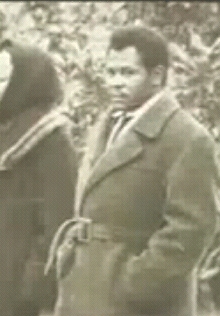
Abel Kingué was a political leader in the struggle for the independence of Cameroon from France.
Tankeu Noé was a member of the Union of the Peoples of Cameroon (UPC) guerrilla forces in Cameroon fighting first against French colonial government and then against the government of Ahmadou Ahidjo in the Douala region.

Ndeh Ntumazah was a leader of the pro-independence movement in Cameroon in the 1950s. He was forced into exile, and was unable to return to his country until 1991, when he returned to the political fray. After his death he was honoured by an official burial.

Tayap is a small village of Cameroon located in the Centre Region, between the country's capital Yaounde (86 km) and Douala (164 km). The village of Tayap is part of the Ngog-Mapubi district of the Nyong-et-Kéllé department.
The Cameroon War is the name of the independence struggle between Cameroon's nationalist movement and France. The movement was spearheaded by the Cameroonian Peoples Union (UPC). Even after independence, the rebellion continued, shaping contemporary politics. The war began with riots in 1955 and continued after Cameroon gained independence in 1960. Following independence, the first President of Cameroon, Ahmadou Ahidjo requested continued French military intervention to fight the UPC rebels. The UPC rebellion was largely crushed by the Cameroonian Armed Forces and French Army by 1964. This war is often forgotten because it occurred at the height of France's biggest colonial independence struggle, the Algerian War.

Marthe Ekemeyong Moumié was a Cameroonian anti-colonialist writer and activist. She was a member of the Union of the Peoples of Cameroon, and the former wife of the assassinated political leader Félix-Roland Moumié.
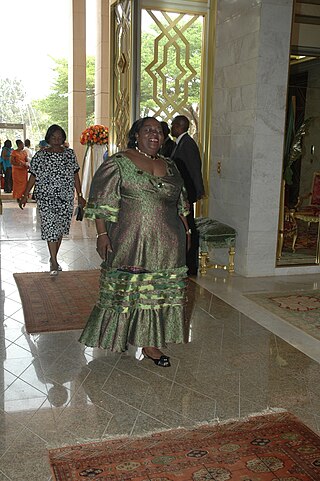
Françoise Foning was a Cameroonian businessperson and politician for the Cameroon People's Democratic Movement (CPDM). She began a career in business at age 12, opening a restaurant before entering into the tourism, transportation, food, medical and education sectors. Foning became president of CPDM's women's division in 1992 and was appointed the party's leader in Douala and the national committee five years later. In 2002, she was elected deputy mayor of Douala II and began serving in the National Assembly that same year. Foning led the African Network and Cameroonian Businesswomen and consulted The World Bank, the African Development Bank along with several international agencies. She was founding president of the Association of Cameroonian Businesswomen and the NGO World Female Company Managers. A street in Douala was named in her memory.












